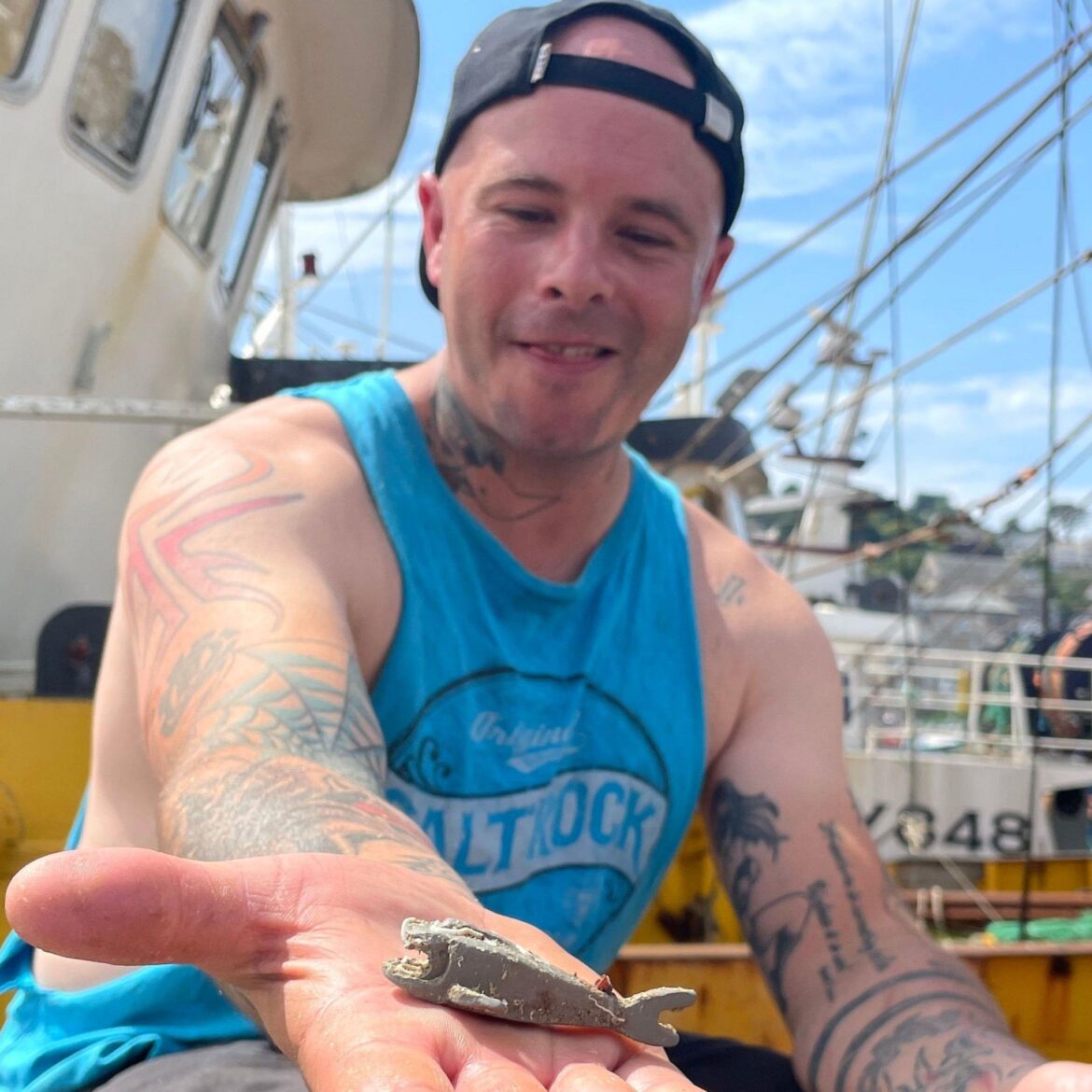Fisherman lands first-ever ‘lost’ Lego shark
A fisherman from Devon has caught a Lego shark—the first of its kind—lost at sea 27 years ago from a cargo ship.
Richard West, a 35-year-old fisherman from Plymouth, discovered the plastic toy on top of his fishing nets 20 miles (32 km) south of Penzance on Tuesday.
He reached out to the Lego Lost at Sea project, where founder Tracey Williams confirmed that this was the first-ever reported shark from the 51,800 Lego sharks lost when the Tokio Express cargo ship spilled its cargo on February 13, 1997.
A severe gale caused a freak wave to toss 62 shipping containers into the sea, 20 miles (32 km) off Land’s End, one of which contained 4,756,940 pieces of Lego, including many sea-themed items.
Mr. West was trawling on the Defiant FY848, a vessel operating between Plymouth, Brixham, and Newlyn, in search of monkfish, sole, and stories when he made this unique catch.
He remarked, “I recognized it immediately because I had Lego sharks in a pirate ship set when I was a kid. I haven’t seen that face in 25 years.”
Ms. Williams confirmed that this was the first Lego shark from the spilled cargo she had ever encountered.
She told him the official Lego inventory showed that 22,200 dark grey Lego sharks and 29,600 light grey ones were in the lost container.
Mr West said: “I was so excited. I was more happy about finding the shark than anything else I caught this week.
“It’s priceless – it’s a treasure!”
Ms Williams said: “This Lego shark is one of 51,800 lost overboard from the Tokio Express and the only one we’ve ever seen.
“Richard and I now have joint custody of the shark.”
The Lego sharks featured in several Lego sets from 1997, including Shark Cage Cove, Shark Attack, and Deep Sea Bounty, she explained.
She asked anyone else who has found Lego from the spill to get in touch with the Lego Lost at Sea project so it could be added to the project’s map, which is recording sightings for a scientific paper on the Lego spill.
Recently Lego from the container lost overboard has been found not just in Cornwall but in the Isle of Man, the Channel Islands, Wales, and Ireland, she added.


